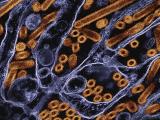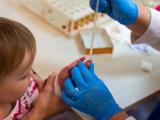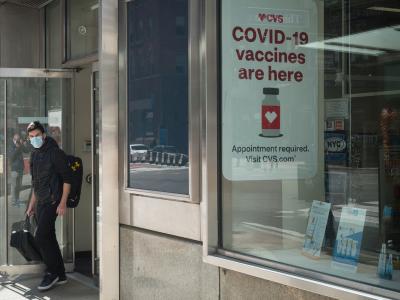Jun 8, 2012
Globally, only regional pockets show increased flu activity
Global flu activity remains low with the exception of Hong Kong, Madagascar, El Salvador, and the Dominican Republic, health officials report. "Influenza activity in the northern hemisphere temperate regions is continuing to decline or back to baseline levels indicating the season is ending," the World Health Organization (WHO) said in an update today. It added that activity in the tropics is low except for Hong Kong and Madagascar, where H3N2 viruses are predominating. In addition, activity began to increase in the Dominican Republic and El Salvador in late April, according to an international flu-activity roundup from the US Centers for Disease Control and Prevention (CDC) this week. H3N2 predominates in the former country and pandemic 2009 H1N1 (pH1N1) in the latter. In the Southern Hemisphere, activity is picking up a bit in Chile and Paraguay, which reported 3% and 12% increases in influenza-like activity (ILI),
respectively, according to the WHO. H3N2 predominates in Chile, whereas pH1N1 dominates in Paraguay. Of 2,297 flu viruses typed globally, 1,325 (58%) were H3N2, 598 (26%) were influenza B, 157 (7%) were pH1N1, and 217 (9%) were unsubtyped influenza A, according to a separate WHO update. In its weekly update on US flu activity, the CDC reported that all major flu indicators were below baseline, and no pediatric flu deaths were reported, leaving the seasonal total at 26. That figure is lowest the CDC has recorded since it started tracking the statistic 7 years ago.
Jun 8 WHO flu activity report
Jun 4 CDC global flu activity update
Jun 8 WHO flu virus activity update
Jun 8 CDC US flu
activity update
Thailand launches trial of nasal-spray H5N1 vaccine
With help from the United States and the WHO, Thailand has launched a phase 1 trial of a nasal-spray H5N1 avian flu vaccine for humans, the US Department of Health and Human Services (HHS) announced yesterday. HHS said Thailand is one of the first countries to test a nasal-spray H5N1 vaccine, which uses a live attenuated virus. (A nasal-spray seasonal flu vaccine, FluMist, has been used in the United States for about 10 years.) The vaccine was originally developed at the Institute for Experimental Medicine in St. Petersburg, Russia, which sold the vaccine license to Biodiem Ltd. in Melbourne, Australia. The WHO helped Thailand acquire a license from the Australian company, HHS said. Through a grant to the WHO, HHS's Biomedical Advanced Research and Development Authority (BARDA) provided funds and technical assistance to Thailand's Government Pharmaceutical Organization (GPO) for work on the vaccine. The grant helped Thailand build a
pilot-scale manufacturing facility, plan and launch clinical trials, and develop a regulatory process for evaluating the vaccine, HHS said. BARDA Director Robin Robinson, PhD, called the phase 1 trial a milestone in international efforts to speed the development of locally produced flu vaccines around the world. The vaccine is part of Thailand's pandemic preparedness program. The results of the trial are expected by May 2013, HHS said. US National Institutes of Health records show that at least two clinical trials of live attenuated H5N1 vaccines have been conducted in the United States.
Jun 7 HHS press release


















